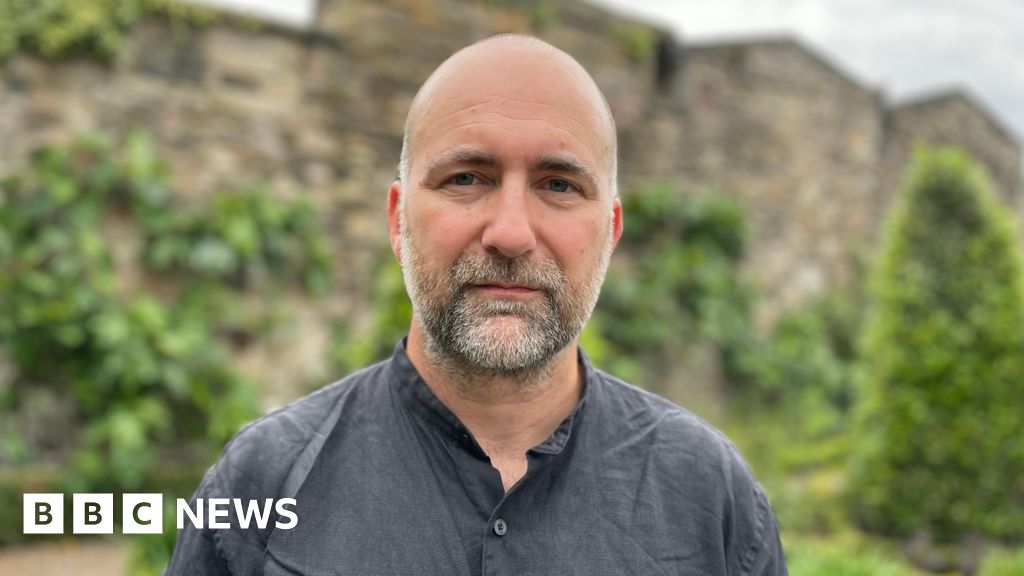In 2018 Brent Wisner won almost $300mn for a groundskeeper who had developed cancer after using Roundup, a weedkiller owned by Germany’s Bayer since its acquisition that year of US agrochemicals group Monsanto.
The story of the then 34-year-old and largely untested lawyer’s victory had enough against-the-odds allure for Netflix to snap up the film rights at Cannes last month, with Hollywood star Glen Powell set to take on his role. Wisner’s father, an environmentalist and screenwriter, helped pen the script.
Having followed up his initial victory against Bayer by landing a $2bn jury verdict against the company in 2019, Wisner is now seeking another Big Pharma scalp: UK drugmaker GSK. The company lost £7bn in value on Monday after a ruling by a Delaware judge last week left it exposed to US jury trials over its allegedly carcinogenic heartburn treatment Zantac.
Wisner says GSK, which is appealing against the decision, faces a “Monsanto-esque situation” if it refuses to settle about 70,000 remaining cases.
“If they want to look smart and avoid the crazy amount of liability that’s coming down the mountain, now’s the time to act — a prolonged fight is going to make it more expensive,” he told the Financial Times.
A child actor in television advertisements, Wisner said being “charismatic and engaging” on screen had helped in his legal career, which also required an element of “performance”.
After completing legal training at Georgetown University in 2010, his father’s friend Michael Baum convinced him to join his plaintiffs’ firm Baum Hedlund in 2012, suing pharma and consumer companies.
Wisner had only worked on a handful of jury trials before his big break came when the incapacitations first of veteran attorney Michael Miller and then his deputy left the case in the hands of the understudy who had helped prep it.
“Monsanto and the other lawyers were thinking: ‘Who is this kid?’,” Wisner said. Videos of his closing remarks in the Monsanto trial show him pacing the courtroom, earnest with praise for jurors and damning in his condemnation of the company.
Those who have seen him at work describe a zealous and professional litigator. According to Mikal Watts, a trial lawyer on the Monsanto and Zantac trials, Wisner is “an exceedingly talented guy”. Baum, effusive about his “top-quality” professional partner and Jennifer Moore, the other co-lead counsel in the Zantac case, said Wisner made cases “entertaining”.
Wisner’s $2bn victory made him the youngest US attorney to have won a multibillion-dollar jury verdict. While it was reduced to $87mn, the Monsanto affair has proved exceptionally costly for Bayer.
The German conglomerate’s market capitalisation has fallen to €28bn, far below the $63bn it paid for Monsanto. Bayer settled most other cases for $10.9bn in 2020 but continues to face trials over the weedkiller.
Wisner, who was elevated last year to managing partner of the renamed Wisner Baum, declined to comment on how much he had earned personally from his work on the Monsanto case.
Delaware judge Vivian Medinilla’s ruling in the Zantac case last Friday did not endorse plaintiffs’ scientists but it will enable jurors to hear experts from both sides debate whether the drug causes cancer. It “re-emphasised the power and importance of a jury”, Wisner said.
Others are less positive about the role of US tort lawyers in pulling together thousands of cases on a “no win, no fee” basis, using what critics claim are cherry-picked scientific claims to generate big returns.
“The plaintiff lawyer industry is big business and Wisner is a case in point,” said one industry insider. “It’s not about justice or science, it’s about pursuing the next large pay-off.”

X-Ante, a company that tracks litigation advert spending, says law firms have shelled out about $58mn on TV ads soliciting Zantac claims since 2019, when tests by a Connecticut lab found carcinogen NDMA in the drug.
Unlike the Roundup cases, a federal ruling in Florida threw out plaintiffs’ evidence over Zantac, finding in 2022 that science linking the heartburn treatment to cancer was based on “unreliable methodologies”. GSK points to 16 studies that show no reliable link between the drug and increased risk of cancer.
Wisner had withdrawn from multi-district litigation in 2020 to focus on state courts. Analysts estimate GSK’s liability to be up to $3.5bn. Pfizer, Sanofi and Boehringer Ingelheim, which marketed the drug for a shorter time, face lower exposure.
One GSK investor has described proceedings as “scary and unpredictable”, adding that “US tort law is anti-science and anti-companies that are trying to do good”.
Wisner rejects this argument as “just bullshit”. “If I’m anti-science then why do I spend all my time talking to the jury about science?” he asked, pointing to GSK lab studies in 1981 that found NDMA when Zantac was combined with high levels of nitrite, and that were not shared with the US Food and Drug Administration until 2019.
GSK has said naturally occurring levels of nitrite in the stomach do not produce the same results.
Wisner is also candid about engaging in the self-promotion necessary among modern lawyers. As well as ads, Wisner Baum uses its TikTok channel to outline alleged carcinogenic properties of Roundup and Zantac and the links between baby food and ADHD.
“Part of our job is to protect our clients not just in the courtroom but outside as well,” he said, describing Wisner Baum’s ads as a “guerrilla warfare operation” against the “better-oiled machine” of groups such as GSK and Bayer.
The companies may have more resources but as Wisner gears up for future trials, he says the Monsanto verdict has “fundamentally changed” how he is treated by defence lawyers and judges.
“It’s the rare moment when these multibillion-dollar corporations and these fancy law firms and fancy judges and courtrooms are humbled by 12 regular people making a decision,” he said. “It’s pure.”
Additional reporting by Oliver Barnes in San Diego
Credit: Source link










